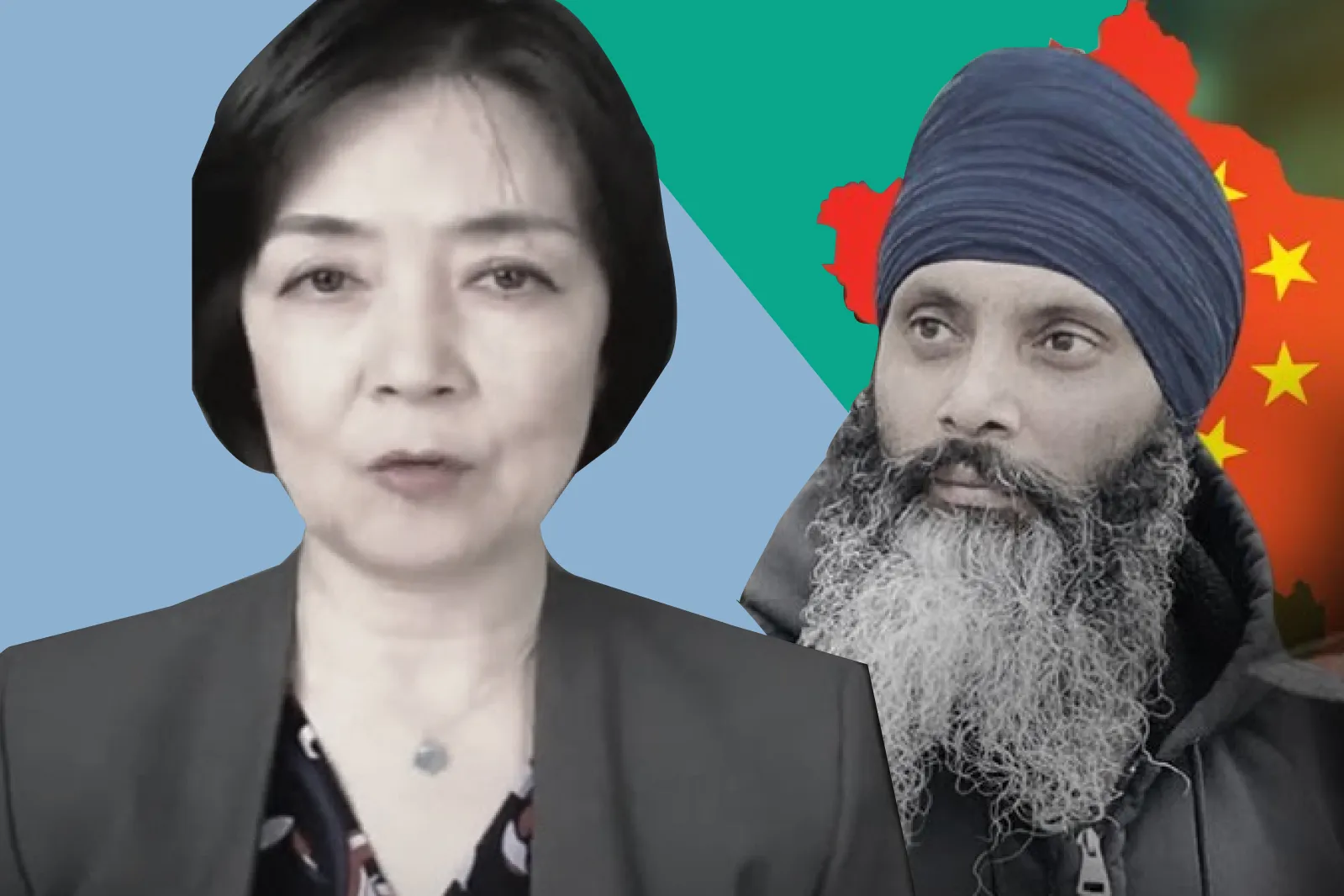Global Power Play: CCP's "Ignition Plan" Unmasked
Assassination, intensified Middle-East conflicts, and the quest for dominance

Confidential sources within the Chinese Communist Party (CCP) hint at a deep-rooted conspiracy that not only orchestrated the killing of Canadian Sikh terrorist Hardeep Singh Nijjar but also allegedly backed the catastrophic October 7 Hamas attack on Israel. With casualties soaring into the thousands, the world watches, tense and apprehensive. But what could be the CCP's endgame? The aim appears to frame India, engage the US on myriad battlefronts, and instigate global mayhem. All roads lead to the CCP’s audacious "Ignition Plan."
The Assassination of Nijjar in Canada
Nijjar, a Canadian Sikh terrorist, led a dual life, working as a plumber while harbouring darker affiliations with the Khalistani terror movement. After fleeing from Indian law enforcement to Canada, Nijjar rebuilt his life, obtaining Canadian citizenship and re-associating with extremist Sikh organisations operating in Canadian safe havens and promoting terrorism in India. His refuge in Canada, under the banner of a human rights activist, was controversial given the hard evidence of his terror activities in India. The Indian government marked him as a high-profile terrorist, citing his involvement in bombing and ties to outlawed extremist factions.
His assassination on June 18 outside a Sikh cultural hub in British Columbia sent shockwaves, exacerbating India-Canada diplomatic strains. Lao Deng, a prominent Canadian Chinese YouTuber, posits that the CCP's hand in Nijjar’s killing was part of a grander scheme to tarnish India's global image. As per his claims, CCP's covert operations had a singular, chilling mandate - eliminate Nijjar in Canada. The aftermath of the assassination was marked by meticulous attack attempts to create a supposed link to Indian agents.
In a revealing episode of his program, Lao Deng disclosed that in the early days of June this year, the CCP's Ministry of State Security, as a part of their "Ignition Plan" initiative, dispatched a high-ranking official to Seattle, USA. This official orchestrated a clandestine meeting in Seattle. Assembled at this meeting were CCP operatives who were working incognito within the USA and Canada. Their mission was singular: to undermine the rapport between India and Western nations. To this end, a clear directive was given to these agents: assassinate Nijjar on Canadian soil.
Pursuant to this covert assembly, the CCP agents carried out the assassination strategy with precision. On June 18th, armed with silenced Uzi submachine guns, these operatives closely monitored Nijjar's movements. As Nijjar departed from the Gurudwara and settled into his vehicle, they opened fire on him. After confirming Nijjar's death, they swiftly removed dash cameras from his vehicle and another parked behind his van, erasing potential evidence before making a hasty exit ahead of the Canadian law enforcement's arrival. In a bid to obliterate any residual evidence, they incinerated their weaponry and the disguises they'd donned for the operation. By the subsequent day, they had already departed from Canada via flights.
Lao Deng went on to assert that his informant provided him with an exhaustive account of the entire assassination process. This encompassed insights into how Nijjar was shadowed, the count of vehicles employed during the act, the identities of the assassins, their chosen disguises and the methods they employed to conceal their visages, their Hindi-speaking abilities among other details. He says three cars were involved in this operation and that he had already forwarded this information to the Canadian government.
Lao Deng expressed shock at Canadian Premier Justin Trudeau's seeming disregard for the evidence. Instead of confronting the evidence head-on, Trudeau commissioned a probe into potential Indian operatives' involvement, leading to a significant strain in India-Canada relations. Lao Deng revealed that the CCP's "Ignition Plan" was devised in March this year. Xi Jinping instructed both the Chinese military and the Ministry of State Security to create plans: the military crafted the Taiwan Strait military plan, and the Ministry of State Security devised the Ignition Plan to complement the military's actions.
Xi Jinping's Direct Ties with Hamas and Iran
Lude Media, an authoritative Chinese-language YouTube channel, sheds light on the deep connections between Xi Jinping and Hamas and Iran.
According to Lude Media, the direct contact for Khamenei’s office is a senior official in the Chief Secretary's Office of the Expediency Discernment Council of Iran. In Chinese, he is referred to as 赛义德.埃赫山.贾瓦赫里. The possible English translation of his name is Seyyed Ehsan Javaheri or perhaps Zawahiri.
The direct contact person for Hamas is identified by the code name "SFRN", whereas the direct contact for Xi Jinping’s Office goes by the designation "Z". “SFRN” hails from Palestine and has an educational background from both the Renmin University of China and the University of International Business and Economics in Beijing.
Meanwhile, the mysterious supreme military commander of Hamas’s military wing - Izz ad-Din al-Qassam Brigades - Mohammad Deif, is an alumnus of the PLA’s Ordnance Engineering College in Shijiazhuang City, Hebei Province, having attended on a CCP scholarship. He is married to a woman from the Sarta (or Santa) ethnicity (دْوݣسِيْاݣ 东乡族) of Gansu Province. The Sarta or Santa community is a Sunni-Islam minority in China.
Alleged direct channels between Xi's office and top brass in Hamas and Iran's Khamenei’s office suggest a deep-rooted alliance. SFRN, a key player from Hamas, boasts of an educational stint in Beijing. So does Hamas’s military commander, Mohammad Deif, who is also rumoured to have ties deep within the CCP establishment.
The CCP’s International Liaison Department
It appears that the Bureau of Mid-East Affairs, a segment of the CCP’s International Liaison Department, likely played a supportive role for Deif during the October 7 attack on Israel. While the insights about the CCP’s influence in the Nijjar case and its connections to Hamas originate from a singular source, they align with the CCP's long-established strategy. This concurrence is further backed by various other sources and public reports.
In a notable instance, July of the previous year saw reports detailing the CCP’s involvement in the assassination of former Japanese Prime Minister Abe. Specifically, the role of the CCP’s International Liaison Department was highlighted. This department has garnered a reputation for orchestrating global chaos to further the interests of the CCP.
From the CCP’s perspective, the US remains their foremost adversary. The principal mission of the CCP’s International Liaison Department is to sow discord, creating a plethora of problems for the US on the international front. I had earlier reported in February about the triad of assignments designated to the CCP’s newly appointed foreign minister. These tasks encompassed prolonging the Russia-Ukraine conflict, fragmenting the US-European alliance to curtail the US’s international clout, and leveraging all diplomatic resources to incite social and political turmoil.
However, these assignments only represent mechanisms to realize the CCP’s broader objectives: the annexation of Taiwan, supplanting the US as the global superpower, and establishing itself as the chief architect of global norms. To fulfil this vision, the CCP perceives the need for widespread chaos and increased warfare. This aligns with Hamas’s sudden assault on Israel and the subsequent global pro-Palestine/Hamas demonstrations. The CCP's strategy appears to be opening a secondary front against the US in the Middle East.
Deng's disclosures regarding the CCP's stratagems and purported ties with Hamas add another piece to this intricate geopolitical jigsaw. The CCP’s International Liaison Department, infamous for its global machinations, seems to be implicated in a myriad of covert operations. These range from igniting international flashpoints, like the Russia-Ukraine standoff, to grander geopolitical schemes. At the heart of their machinations is an audacious ambition: to occupy Taiwan, usurp the US's global leadership position, and redefine the world's governing rules. In this light, their alleged backing of Hamas's attack on Israel and the orchestration of global pro-Palestine sentiments can be seen as calculated diversions tailored to their broader agenda.
India: A Thorn in the CCP’s Side
In the CCP's strategic worldview, India stands as a notable impediment, and this is attributable to two primary factors.
Firstly, in the current economic landscape, India is steadily gaining prominence. As Western corporations and investors seek alternatives and gradually shift their supply chains and investments away from China, India is becoming their preferred destination. Secondly, from a political perspective, India, being the globe's most populous democracy, presents a stark contrast to China, which holds the dubious distinction of being the world's largest authoritarian regime.
The CCP's inherent aversion to democratic values and freedoms is rooted in fear. As a totalitarian regime, the very notions of democracy and freedom pose existential threats, invoking concerns that such ideals might resonate with and inspire the Chinese populace. This ideology explains the CCP's aggressive stance towards regions like Hong Kong and Taiwan, which must be subjugated in their view.
Moreover, India's ascendancy compounds the CCP's challenges. Serving as a thriving democratic exemplar, especially with a population size mirroring China's, India presents a provocative question: if India can prosper in its democratic setting, what's stopping China from doing the same? The last thing the CCP desires is for its people to engage in such reflective comparisons. As India continues to rise, drawing attention from Western industries and embodying the democratic spirit, the CCP finds itself in a predicament. The underlying apprehension is palpable: a potential shift in the Chinese public's mindset towards favouring democratic governance.
The Philosophy of Chaos
Xi Jinping's philosophical underpinnings are strikingly reminiscent of Mao Zedong's foundational beliefs: that chaos serves as the bedrock upon which a novel global order can be forged. Mao once pronounced, “The world needs to be in great chaos before a great order can be achieved.” This ethos seems to reverberate through Xi's actions and statements.
Following a significant meeting with Putin in March this year, Xi emerged with a cryptic declaration, stating, "Right now, there are changes – the likes of which we haven’t seen for 100 years – and let’s drive these changes together.” This proclamation suggests that both leaders recognize and anticipate monumental shifts in the global order.
The prevailing global tumult, I posit, is the manifestation of the "changes" Xi envisions, and he seeks to catalyse them in tandem with Putin. Drawing parallels with Mao, Xi appears to operate under the conviction that in the throes of such significant chaos, the CCP stands not only to weather its internal power crises but also to ascend to an unparalleled position of global dominance.



































